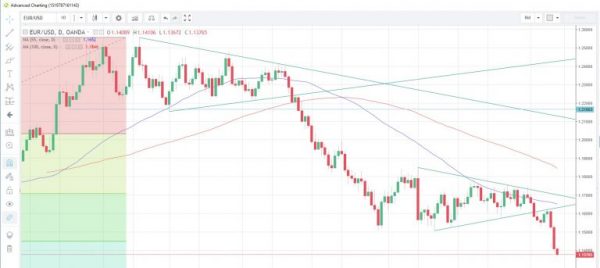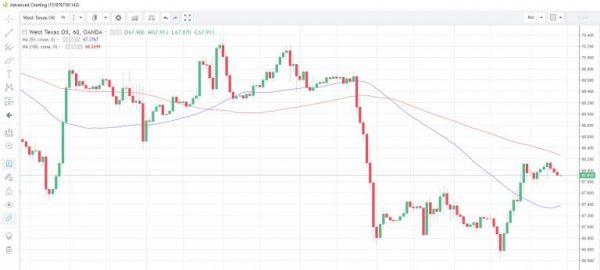Turkey says it has an action plan
The EUR touched a 13-month low versus the US dollar as trading got underway this week, with markets preparing for more turmoil involving the Turkish lira. The seemingly unstoppable downward spiral in Turkey’s currency and economy is raising concerns about European banks’ exposures to the country helped spark contagion fears while safe haven flows saw German 10-year bond yields edge lower.
The EUR touched 1.1366, the lowest since July last year though has since rebounded as traders focused on comments from Turkish Finance Minister Berat Albayrak who said the country had drafted an action plan to ease investor concerns. He added that the banking watchdog had also limited swap transactions in the currency. There were no details on the so-called plan, so the bounce so far has been muted. The lira extended its weakening bias, hitting a new record low of 7.0081 versus the US dollar. EUR/USD is currently trading at 1.1381.
Oil attempts to keep its firmer bias
Tight supply conditions pushed oil prices higher as trading got under way though concerns about a possible near-term drop in demand capped gains. In the longer run, oil demand is seen rising to 1.5 million barrels per day in 2019, up from 1.4 million barrels per day this year, according to the monthly IEA market report released Friday. WTI is currently trading at 67.91 after touching 68.17 earlier. Near-term, WTI appears capped by the 100-hour moving average which currently sits at 68.27.
China data scheduled
We are awaiting some second-tier loans data from China this morning. Growth in new loans is expected to slow to 1.21 billion yuan in July while the M2 money supply is expected to advance 8.2% y/y that month. Foreign direct investment could also be released today.
Sentiment readings for Australia’s business conditions and business confidence are also due sometime this morning. The last readings were 15 and 6 respectively.


